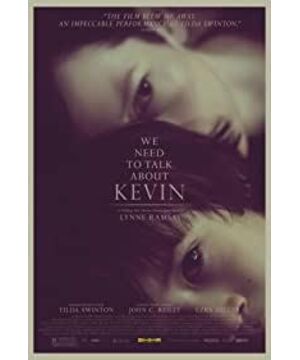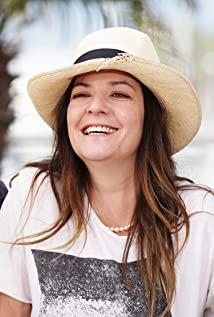The reason for watching this film in the first place is simple, Ezra Miller. Anyone who has watched "The Perks of Being a Wallflower" will not feel unfamiliar. The brave and fearless boy Patrick left a deep impression on people. But in this film, Patrick's style has changed, and he has transformed into a paranoid teenager with a serious lack of emotion.
The plot of the movie is adapted from the novel, telling the story of a child who lacks family security and does not feel love and fights back with all his strength.
The shots in the film have been compared before and after, and the connection is smooth, bringing the plot to the end step by step. Kevin's mother, Eva, is a free-spirited professional white-collar worker who is passionate about his career and likes to pursue excitement. This early setting creates a strong and intuitive contrast with the image after marriage. However, after a joyous event, Eva unexpectedly learned that she was pregnant. After giving birth to Kevin, she began a long "forced smile" journey with the baby. The incompatibility of role switching and the state of forcing oneself to adapt to taking children as a work task. In the daily interaction with Kevin, Eva only gave meticulous care in life, but did not give emotional two-way indoctrination, thus ignoring the changes in her son's mood. As for the time when she finally found out that her son had anti-social behavior, it was too late Night.
Here I want to blow up the little actor who played Kevin as a child, and his eyes were handled very well. With a frown and a smile, Kevin's complex, yet simple, role-playing is amazing.
One of the lines Kevin said to Eva that if you are used to it doesn't mean you like it, aren't you also used to my existence? The question pattern, but the tone is unquestionable affirmation. Children are very sensitive, whether you really love him, he will sense.
While playing archery, he shot an arrow in the direction of his mother. The vindictive antisocial personality began to show, escalated from the insecure attachment as a child, and used his unique deformed way to attract people's attention.
She was even more indifferent to the things around her. After her sister was blind in one eye, her attitude was so insensitive that she no longer had the ability to empathize.
When Kevin was fifteen years old, the model of the two of them was like "playing on the scene". They were close to each other on the surface, but the distance in their hearts seemed to be separated by mountains and seas.
In the end, Kevin completed a grand self-moving "stage play", and when it ended, he bowed to the empty school auditorium.
There are many red paints in the film. I think the director wanted to express that red represents blood, and it was Eva who killed his son's soul and left him to rot. But what about the teenagers who lost their lives in that absurd "stage play"? They shouldn't pay for it.
What happened to Kevin, no one should know the reason more than his parents, but at the end of the film, Kevin himself was at a loss, so what was the purpose of everything after the curtain ended? The director gave us plenty of room for divergence, and everyone will have different interpretations after reading it, but in the end the unanimous one will be the importance of the original family environment. The family environment is the child’s first small society, and the parents are the child’s first teachers. No matter what the circumstances are, when he comes to this world, you must do your best as a parent. Companionship and love are the most important things for a child when he is young. need something.
"If love has a heart but no heart, it is shameful; if love has a heart but no heart, it is sad." To love a person must make the other person feel it.
View more about We Need to Talk About Kevin reviews











